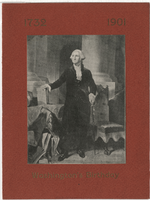Search the Special Collections and Archives Portal
Search Results
Linda Van Tuyl oral history interview
Identifier
Abstract
Oral history interview with Linda Van Tuyl conducted by Ruth Brainard on February 22, 1979 for the Ralph Roske Oral History Project on Early Las Vegas. In this interview, Van Tuyl discusses arriving to Las Vegas, Nevada in 1948 to work as a nurse and describes nursing practices during that time. Later, Van Tuyl discusses the integration of accessibility accommodations for people with disabilities throughout Las Vegas. Van Tuyl later shares her thoughts on Medicare and other forms of health insurance.
Archival Collection
Ivory H. Blue II oral history interview
Identifier
Abstract
Oral history interview with Ivory H. Blue II conducted by John Grygo on 2013 February 22 for the African Americans in Las Vegas: A Collaborative Oral History Project. This oral history documents the early life of Ivory H. Blue II in Las Vegas, Nevada while growing up in the Westside projects. He also discusses his college years in the 1990s at the University of Nevada, Las Vegas.
Archival Collection
Robert Fulkerson oral history interview
Identifier
Abstract
Oral history interview with Robert "Bob" Fulkerson conducted by Dennis McBride on March 27, 2007 for the Las Vegas Gay, Lesbian, Bisexual and Transgender Archives Oral History Project. In this interview, Fulkerson discusses his involvement in the Nevada for Constitutional Employment (NCE) organization and their 1993 efforts to repeal Nevada's sodomy law. Fulkerson describes how the gay community reacted and prepared for the 2002 voting season, specifically regarding question 2, which banned same-sex marriage in Nevada. Later, Fulkerson compares both legislative events. Lastly, Fulkerson discusses the future of the gay community in the state of Nevada.
Archival Collection
Rose Pry oral history interview
Identifier
Abstract
Oral history interview with Rose Pry conducted by Dennis McBride on August 24, 2008 for the Las Vegas Gay, Lesbian, Bisexual and Transgender Archives Oral History Project. In this interview, Pry discusses arriving to Las Vegas, Nevada in the 1980s and describes the lesbian community at the time. She talks about Women United of Nevada (WUN), a lesbian-identified organization founded in 1987, the events that they held around the community, and the women who were leaders in the organization. Lastly, Pry then discusses her employment writing for the
Archival Collection
Daisy Lee Miller oral history interview
Identifier
Abstract
Oral history interview with Daisy Lee Miller conducted by Claytee D. White on March 22, 2013 for the African Americans in Las Vegas: a Collaborative Oral History Project. Miller discusses Las Vegas, Nevada’s education system and raising her children in the Westside community amidst the civil rights movement.
Archival Collection
Diana Saunders oral history interviews
Identifier
Abstract
Oral history interviews with Diana Saunders conducted by Joyce (Marshall) Moore on May 23, 1996, conducted by Brigid Kelly on July 22, 2002, and conducted by Joanna Goodwin on August 12, 2002 for the Women's Research Institute of Nevada (WRIN) Las Vegas Women Oral History Project. In her interviews Saunders discusses her dance career in New York City, New York. Saunders discusses working on Broadway and touring internationally in Europe and Australia as a dancer. Saunders discusses working at the Dunes in Las Vegas, Nevada and her experiences as a dancer in Las Vegas. Saunders also talks about the lengths dancers had to go through to be successful.
Archival Collection

Washington's birthday at the Hotel Atlas, menu, Friday, February 22, 1901
Date
Archival Collection
Description
Text
Else Lappoehn, Sylvia Brunn, Art Ruckle and George Brunn oral history interview, 2007 April 22
Level of Description
Archival Collection
Collection Name: Carole Terry's "Germans in Las Vegas" Oral History Project
Box/Folder: Box 02, Box 04
Archival Component
Wendy Butler oral history interview
Identifier
Abstract
Oral history interview with Wendy Butler conducted by Dennis McBride on May 23, 2007 for the Las Vegas Gay, Lesbian, Bisexual and Transgender Archives Oral History Project. In this interview, Butler discusses her involvement with the magazine
Archival Collection
Paul Velez oral history interview
Identifier
Abstract
Oral history interview with Paul Velez conducted by Barbara Tabach on February 22, 2018 for the Remembering 1 October Oral History Project. In this interview, Paul Velez, a University of Nevada, Las Vegas (UNLV) campus officer, discusses his experience at the Thomas & Mack Center during the night of the October 1, 2017 mass shooting in Las Vegas, Nevada. He shares his goal of creating a safe atmosphere for the survivors and providing them with all of their needs, including helping separated survivors find their loved ones and friends. Velez also describes his move to Las Vegas in 2008 and his time with the New York City police force, talking about his experience as a first responder at Ground Zero during the 9/11 attacks. He discusses the effect these attacks have had on general and campus security measures and on him as an individual.
Archival Collection
